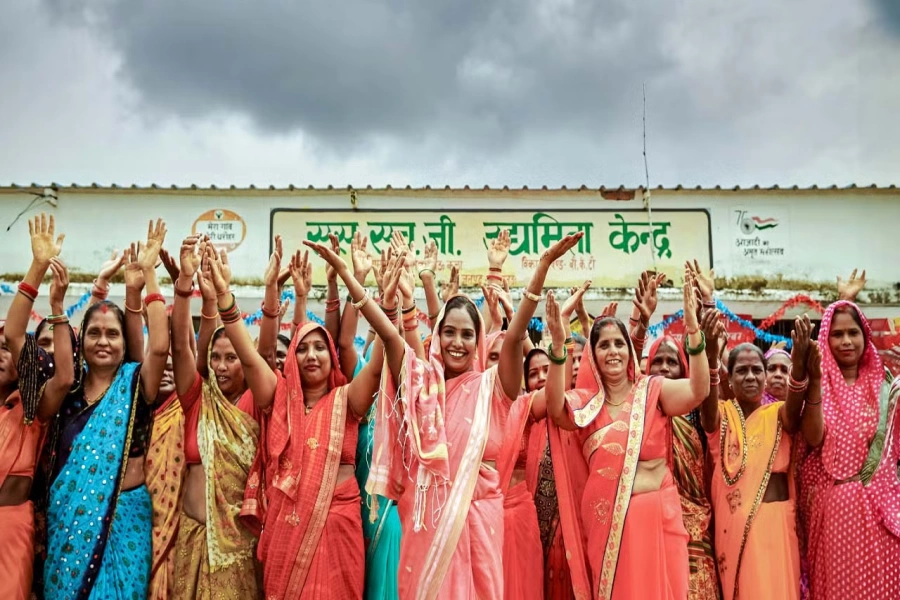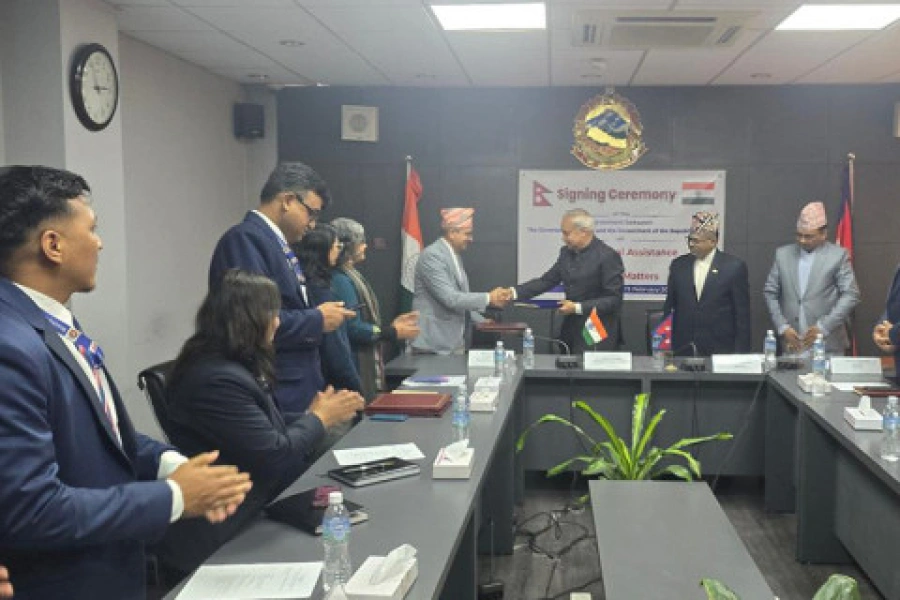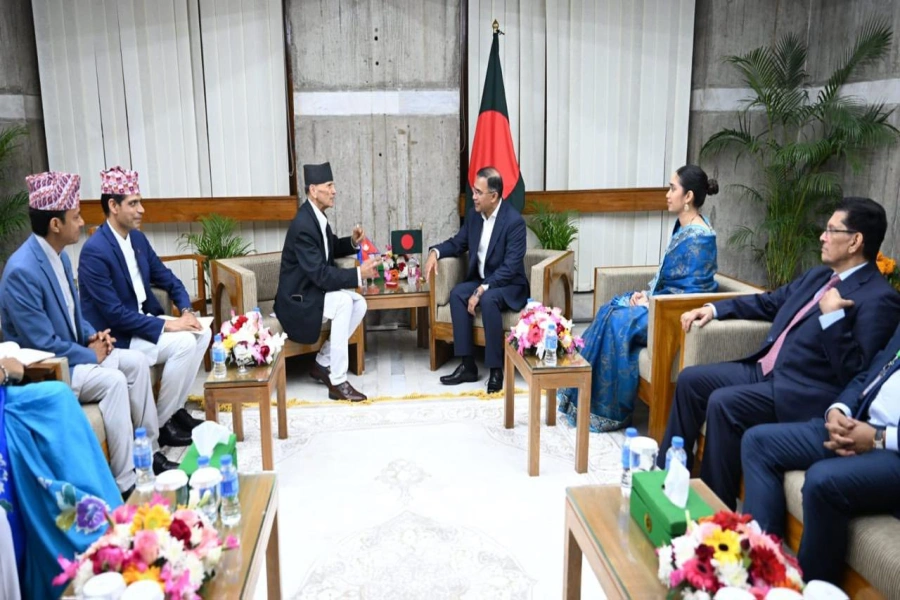While Nepal is heading toward institutionalizing the federal democratic republic, re-conceptualizing women empowerment appears a vital task
Corporate pressures have nurtured an environment in which the objectification of women as market commodities to cater to lustful desires of men has harmed women’s dignity beyond imagination. Visible media portrayals of women across the globe supply numerous examples of how women are being commodified as mere industrial objects. No matter how overwhelmingly images of beauty myths are used worldwide as tools to commodify women, their ground realities are extremely different. Nepal can be no exception to this reality. Far removed from this truth are lustful and money-mongering lunatics who fail to recognize the dignity of women.
While the corporate mission to promote women as images of beauty rather than as human beings gets reconsolidated, those advocating women empowerment will also continue facing severe challenges. Nepal’s current political helms are fumbling their way to deal with strategies of empowering vulnerable groups, while they seem more prone to market patterns of commodification of women. This is where women advocacy groups need to be watchful. A pro-empowerment advocacy really begins from the internalization of the truth that although the existing level of women advocacy has rendered directly involved women activists more vociferous and rhetoric-rich, the existing smooth-tongued advocacy for women empowerment appears devastatingly clung to reactive ritualism to which Nepali women—of course women across the globe—need to build an emancipatory psyche to combat mental slavery created by corporate images of women’s beauty myth.
Celebrating the inspiring stories of women’s courage, resilienc...

Conceptualizing empowerment
Women empowerment mainly refers to the process of enhancing women’s capability as well as to the situation of women’s being morally, mentally and professionally capable. Empowered women are able to live a dignified life while thinking critically and analytically and acting as independent citizens. Equally, women empowerment aims to enable women to not only demand their human and citizen rights but also to advocate the same for others.
As Nepali women seem extremely vulnerable even at home, encouraging them to swarm into Gulf countries as unskilled migrant workers or domestic maids, especially for the prosperity of recruiting agencies and in-betweens is not a wise method of empowerment. Some argue that Nepali rural women, who have reached Gulf countries to sell their labor have—with outer exposure—become economically and socially more powerful. But this is not a truth worth generalizable because most of such women keep untold pains and miseries to themselves. In this respect, some quantitative changes among a limited number of migrant women are not to be denied.
However, one cannot note the enhancement of socio-moral and professional quality so vital for real empowerment. Since, women empowerment is a holistic process of getting better in multiple areas of life, their participation in political structures is to be sought for increasing their influence in other spheres of life. Encouraging semi-literate and unskilled Nepali women to go to Gulf countries signifies that they are being far more vulnerable than ever before. Their family structures are getting anomalous, with children lacking essential moral guidance and mental concentration on educational prerequisites. Moral deviation of children implies significant repercussions for future generations, especially on the score of morally conscientious and accountable citizenry. This aspect is still under-considered. To deal with this issue, pro-empowerment stakeholders could do justice by building pressures for strategies to empower women at home.
While Nepal is heading toward institutionalizing the federal democratic republic, re-conceptualizing women empowerment appears a vital task. The nation’s key strategy to empower women should be the path of women’s mental and moral transformation, rather than the commodification of women as industrial objects, serving mere patriarchal ends as usual. Alluring more women to become migrant workers in the Gulf countries appears a far easier method for silencing them, along with the process of their dullification.
But it will be counterproductive to the Nepali society in the long run, though we can frankly acknowledge some quantitative changes in women’s lives. As no sociological and anthro-cultural research to a mentionable degree has been carried out regarding the impact of unskilled women’s migration (forced?) to Gulf countries, apparent socio-moral effects with serious underlying implications can be observed even without academic research. Migration as a natural process is a normal phenomenon in the human society. But the state-propelled migration of both men and women at the cost of people’s moral and mental development and children’s early learning goals will cost the whole nation with multiple effects to undergo. Thus, what the state has been claiming about the process of empowering vulnerable groups is highly questionable.
Simplifying strategies
There is no need to render women empowerment strategies more intricate and bombastic. To pull back stakeholders clinging to degenerative reactivism into the right track is the task primarily belonging to concerned scholars, especially academic researchers. Proactive advocacy, not the reactive one based on incidents, is the prime need. Proactive empowerment advocacy involves the pursuit of strategies and change-minded actions founded on research outcome, not on piles of emotional reactions over incidents. Proactive strategies and actions do not aim at catering to recycling reactions. They intend to bring about ever upgradable and justifiable changes in policies and actions.
A never-mistaken strategy to empower women is that of education and employment. But this is easier said than done. Without overwhelmingly embarking on the path of building emancipatory capacity in women, trumpeting women empowerment would be tantamount to deception. Education is often misunderstood when, in its name, much superficialization of mind and behavior crystallizes. Nepal, since the 1990s, haphazardly adopted a profit-centered policy of education, which has pressured middle class people to give up value thinking and behavior, while causing a high rate of dropouts among working class people.
Even the latest educational policy and law—addictively given to oligarchic profitism—are likely to empower none of the vulnerable groups, including women. Political leaderships and non-state actors need to provide adequate attention to this issue.
Generations are being trained to live to eat rather than to eat to live. Money-centered mental formations definitely lead to the crystallization of corresponding behavioral culture, which ultimately affects women advocacy, too, in both financial and moral terms. Radicalization of women advocacy involves evoking women’s very desire to become better not only in body glamor but also in mental and moral power. Ultimately, mental and moral power matters the most for the real liberation of women. Here, radicalization of women advocacy does not mean extremizing women communication in an irresponsible manner.
It actually means letting women exercise into deeper roots of their issues so as to achieve greater mental and moral power. Radicalization of women advocacy can be linked to the agenda of mental and moral transformation—scientifically advocated by the Buddha 2500 years back for humankind. In other words, morally and mentally empowered women are not only critical and analytical but also wise and merit-spirited. This is how they get empowered and empower the society. But unhindered access to such opportunities at local, provincial and central levels is vital.








































